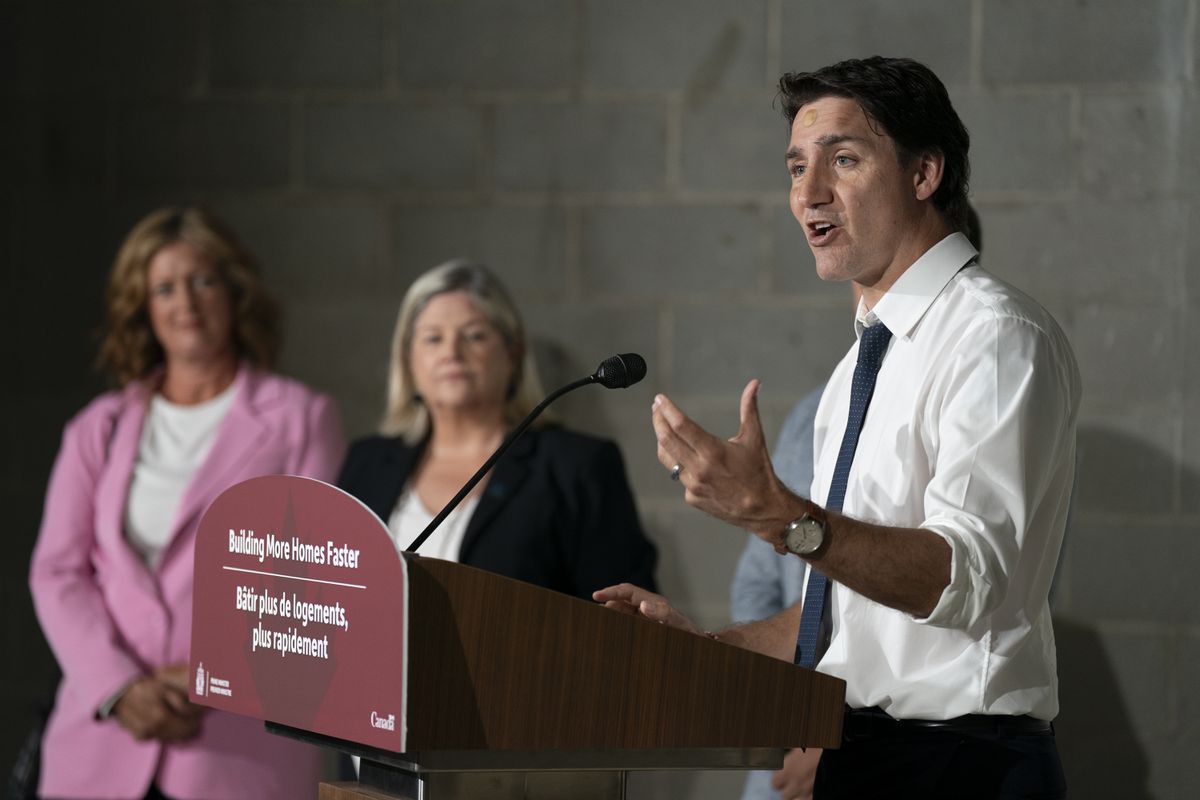By the early 1990s, the federal government pulled financing from public housing projects, which, experts agree, is largely the reason that there’s a dearth of purpose-built rental stock available now. … And for the past three decades, government tax policy shifted toward homeowners instead of renters.
bUt HoUsInG iS a pRoViNcIaL rEsPoNsIbiLiTy
There’s a tonne provinces and cities need to do to ease the crisis, but the feds have a role too.
Okay. The feds decide to build the old '70s style three story walk-ups they used to fund back in the 60s and '70s. The city has no appropriate zoning. That’s the end of the project. The feds can’t overrule the zoning regs. The province could, but so far they haven’t.
So the feds give money to the province to build housing. Province thanks them, and builds a new highway in the premier’s riding , or cut provincial taxes or whatever other pet project they decide on. And there’s sweet f-all the feds can do about it.
The big difference between the 1970s and now is the ratification of the constitution in '82. It makes it much more difficult for the feds to intrude into provincial jurisdiction. They and the provinces let most of the old housing construction agreements lapse in the late 1980s and early 1990s. The feds by and large haven’t been involved since, aside from some energy efficiency programs and CMHC.
Sounds about right, but there are plenty of mechanisms for ensuring that special purposed government funding passed between different spheres are to be spent in specific ways. Anyway, I don’t think it’s a problem to be solved with funding.
Federal government could offer free money to municipalities who update their zoning regs.
Then there’s our dear Quebec premier who says there is no crisis
I’m looking forward to Quebec’s new Airbnb regulations. If it’s enforced it should free up some housing.
This is the best summary I could come up with:
Andy Yan, director of Simon Fraser University’s City Program, says the federal government has always had “tremendous power” around shaping supply, demand and financing of Canada’s housing system.
He says the feds also crucially supply housing data via Statistics Canada, which are used to shape policy at every level of government, and inform real estate markets.
It’s almost hard to believe there was a time when the federal government was duty bound to deliver centrally located housing that was affordable to low and middle class citizens.
The federal government created a public housing program for low-income families and eventually built Regent Park in Toronto and Little Mountain in Vancouver.
By the early 1990s, the federal government pulled financing from public housing projects, which, experts agree, is largely the reason that there’s a dearth of purpose-built rental stock available now.
Federal policy does not address income and wealth inequality, human rights violations, the hyper-commodification of housing, and home ownership entitlement to unearned, untaxed capital gains, says Prof. Hulchanski.
The original article contains 1,306 words, the summary contains 167 words. Saved 87%. I’m a bot and I’m open source!
He is really disconnected from our hard reality !!!
No more turdeau



